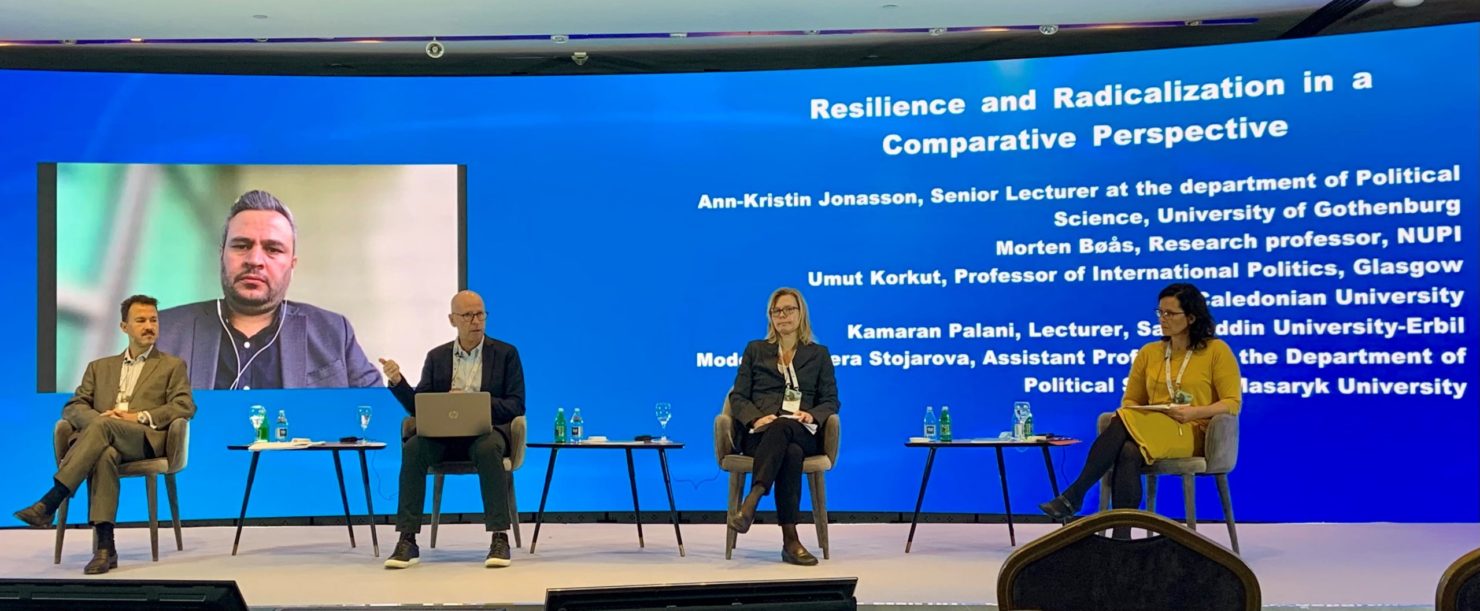On 26-28 October 2021, the 11th Belgrade Security Forum, Testing Humanity, was arranged in Belgrade, Serbia. The topic of the academic part (day 1) was Resilience and the PREVEX project contributed as a strategic partner.
The conference opened with a key-note speech by Professor Peter Neumann, from King’s College, London. He focused on trends in this field, one of them being that both far right and jihadism constitute serious structural threats to European societies; another being that it is important to better understand the links between political polarization and political violence. Neumann also warned about post-pandemic terrorism, understood as the radicalized core of those who were opposed to lock-down and vaccination.
Several PREVEX-researchers participated at this conference: Predrag Petrovic (Belgrade Center for Security Policy – BCSP), part of the organizing team, moderated Panel 1, Factors of Resilience to Violent Extremism. One of the key-points from this panel was that it is important to make sure that individuals are aware of false narratives. Inclusion of former extremists may be key to building community resilience.

Kari Osland (Norwegian Institute of International Affairs – NUPI) moderated Panel 2 entitled Resilience to Violent Extremism in Southeast Europe where Evlogi Stanchev (Bulgarian Academy of Sciences) presented initial findings for a paper on Understanding non-occurrence of violent extremism in the Balkans and Marja Ignajtijevic (BCSP) presented a paper written with Predrag Petrovic on Violent Islamist Extremism in Serbia: Enabling Environments and Resilience Factors. A key take-away from this panel was that it is difficult to differentiate between drivers of radicalization and drivers of resilience because they are often two sides of the same coin. How veterans may play a role in strengthening community resilience was also discussed.

Morten Bøås (NUPI) participated in Panel 3, Rescilience and Radicalisation in a Comparative Perspective, and presented a paper Understanding enabling environments in the Balkans and the MENA: the occurence and non-occurence of violent extremism, written by Abdoul Wahab Cisse, Kari M. Osland and Bøås. Also Kamaran Palani (Salahaddin University-Erbil and MERI) presented a paper Occurrence and non-occurrence of violent extremism in the Nineveh province and Kurdistan Region of Iraq, written by Dlawer Ala Alden (MERI), Erik Skaare (Sciences Po) and Palani.Topics discussed in this panel: While the Balkans, the Sahel and the MENA region can be characterized as enabling environments, there are also important differences between regions, countries and even within these countries. What seems to be generic, however, is the way in which the response of the state can contribute to occurrence and non-occurrence of violent extremism. Another point made was that there is a tendency to focus on the manifestation of the phenomena without considering the local resilience to this phenomenon, which is less properly understood.
For more information, see the webpage of the conference here.



